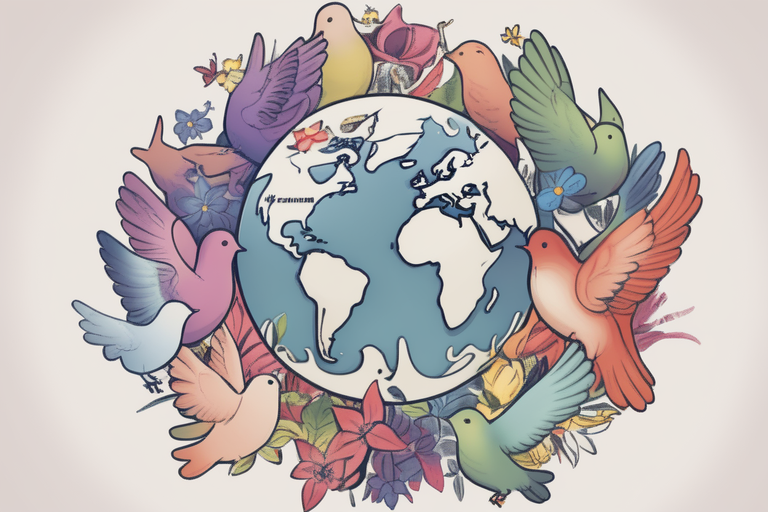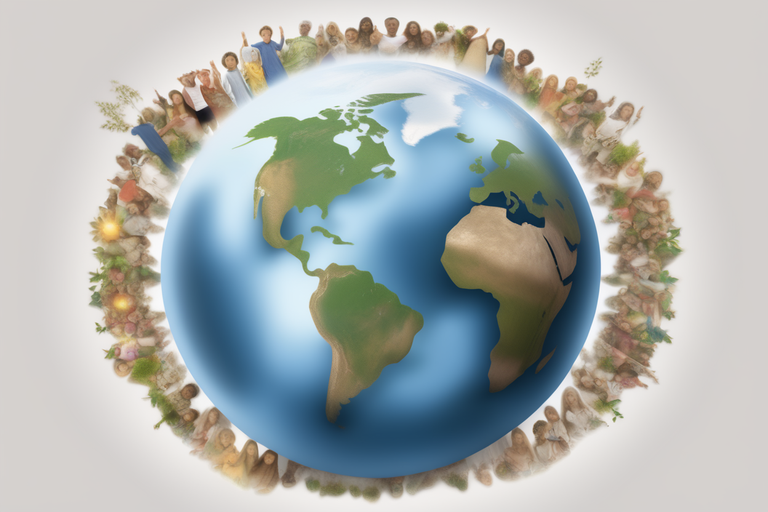In the midst of a long-standing conflict, it is crucial to explore fresh avenues for peace between Israel and Palestine. While historical grievances may appear insurmountable, embracing the power of kindness can bring about transformative change. One key step towards ending harm is fostering empathy and understanding on both sides. Recognizing each other’s pain and aspirations could pave the way for dialogue based on compassion rather than animosity. This shift in perspective can plant the seeds of trust that are essential for sustainable peace.
Another crucial aspect of stopping mutual harm lies in learning from past initiatives. The Oslo Accords, signed over two decades ago, demonstrated that diplomacy has the potential to unite these fractured societies. However, we must acknowledge where previous attempts have fallen short and build upon those lessons for new strategies. True progress will require consistent commitment from both Israeli and Palestinian leaders to find common ground through negotiation and compromise.
When it comes to dealing with conflict in a better way, here are a few suggestions:
- Effective Communication: Foster open and honest communication between parties involved in the conflict. Encourage active listening, empathy, and understanding. Create a safe space where everyone feels heard and respected.
- Seek Common Ground: Look for areas of common interest or shared values that can serve as a foundation for finding mutually beneficial solutions. Focus on finding win-win outcomes rather than perpetuating a win-lose mentality.
- Mediation and Dialogue: Engage the services of a neutral third party, such as a mediator or facilitator, to help guide the conversation and promote constructive dialogue. This can provide a structured and impartial environment for all parties to express their concerns and work towards resolution.
- Empathy and Perspective-Taking: Encourage empathy and perspective-taking among all parties involved. Encouraging individuals to put themselves in the shoes of others can foster understanding and compassion, helping to bridge gaps and find common ground.
- Collaborative Problem-Solving: Instead of approaching conflict as a competition, promote a collaborative problem-solving approach. Encourage brainstorming and creative thinking to find innovative solutions that address the needs and interests of all parties involved.
- Focus on Long-Term Solutions: Instead of temporary fixes, strive for long-term solutions that address the root causes of the conflict. This may involve addressing underlying issues, promoting equality, and fostering sustainable development.
- Education and Awareness: Promote education and awareness about conflict resolution, peacebuilding, and the importance of dialogue. By fostering a culture of peace and understanding, we can contribute to a more peaceful and harmonious society.
Remember, resolving conflicts requires patience, understanding, and a willingness to find common ground. It may take time and effort, but with a commitment to peaceful resolution, conflicts can be transformed into opportunities for growth and reconciliation.
Final Thoughts
Ultimately, achieving lasting peace requires breaking free from rigid narratives that perpetuate division. By encouraging open-mindedness, acknowledging shared history as well as individual experiences of suffering, Israel and Palestine can forge a path towards coexistence rooted in respect and understanding. Only by choosing love over hate can these nations transcend their tumultuous pasts and create a future filled with harmony and prosperity for all its inhabitants – irrespective of religion or ethnicity.







The importance of World Peace
The 21st century has been marked by increasing global interconnectedness and interdependence. Now more than ever, the actions of one nation have the potential to affect people and communities around the world. For this reason, it is essential that we all work together to promote peace and understanding between different cultures and religions.
The Israeli-Palestinian conflict is one of the most long-running and intractable conflicts in the world today. For over 70 years, the Israeli and Palestinian people have been locked in a cycle of violence and mistrust. Although there have been periods of relative peace, the conflict has always flared up again, often with tragic consequences.
In recent years, the situation has become even more complex and dangerous, with the rise of extremist groups on both sides. These groups are committed to using violence to achieve their aims, and they are often successful in dragging the whole community back into conflict.
The Israeli-Palestinian conflict: a history of violence
The roots of the Israeli-Palestinian conflict go back to the early 20th century, when the British government issued the Balfour Declaration in 1917. This declaration promised to create a Jewish homeland in Palestine, which was then under Ottoman rule.
After the First World War, Britain took control of Palestine from the Ottomans and the Balfour Declaration was implemented. This led to an influx of Jewish immigrants into Palestine, which created tensions with the existing Arab population.
The situation came to a head in the late 1940s, when the British withdrew from Palestine and the state of Israel was created. This was followed by the outbreak of the Arab-Israeli War, in which Israel was attacked by its Arab neighbours. Although Israel emerged victorious from this war, it occupied large parts of Egypt, Jordan and Syria.
The Arab-Israeli War also led to the displacement of hundreds of thousands of Palestinian Arabs, who became refugees in their own country. In the years that followed, there were a series of further wars and conflicts, as well as periods of relative peace.
How can Israel and Palestine stop harming one another?
One of the biggest obstacles to peace is the mistrust and hatred that has built up between the two sides over the years. This mistrust is often perpetuated by the media, which tends to focus on the negative aspects of the conflict.
Another obstacle is the presence of extremist groups on both sides, who are committed to using violence to achieve their aims. These groups often make it difficult for the leaders of Israel and Palestine to make progress towards peace.
One way to overcome these obstacles is to encourage more contact and communication between Israelis and Palestinians. This can be done through education, the media and other forms of cultural exchange.
It is also important to build up trust between the two sides. This can be done by working towards confidence-building measures.
Most importantly as a species if we want to enjoy world peace…we need to choose Love over Hate!